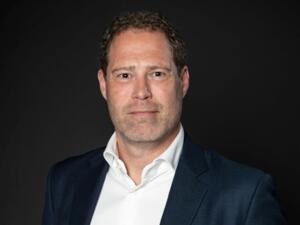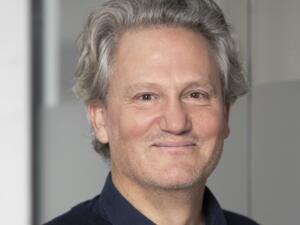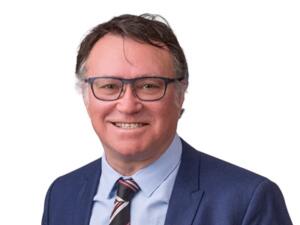When private equity falls in love with IP
Two private-equity-backed mergers involving Benelux patent attorney firms in quick succession have raised eyebrows. In the Netherlands, a sound regulatory framework for corporate structures meets law firms that are open to change. Those behind the mergers see themselves as having an advantage over law firms with a classic partnership model. They want to compete with the leading firms from Germany and the UK.
7 October 2025 by Mathieu Klos
When considering the big names among European patent attorney firms, one tends to think of Bardehle Pagenberg, Hoffmann Eitle, Carpmaels & Ransford, D Young, Marks & Clerk or Grünecker. Dutch law firms are not usually the first to spring to mind.
Currently, however, it is not the large German or UK patent attorney outfits in the crosshairs of private equity investors. Instead, they are primarily targeting medium-sized patent attorney firms from the Benelux countries. These have higher ambitions and are flexible enough to change their structures.
One such firm is well-regarded Dutch patent attorney firm NLO. In April 2025, NLO and French patent attorney firm Ipsilon announced their merger, with Dutch private equity house Waterland investing in the combined firm’s future.
The merger’s reach extends well beyond France and the Netherlands. In 2023, as part of its growth strategy, Ipsilon acquired Belgian firm IP Hills. Ipsilon also has offices in France, Germany and Luxembourg. NLO adds offices in Belgium, the Netherlands and one in Munich. Ipsilon and NLO’s combined headcount now exceeds 400 across multiple offices in seven countries.
Second merger in 2025
With 41 patent attorneys NLO is one of the larger firms in the Netherlands. While NLO is a pure patent attorney firm, Arnold & Siedsma practices a mixed approach with a small lawyer team.
Arnold & Siedsma is particularly well established in the Netherlands. It is a medium-sized patent attorney firm with 32 patent attorneys and 3 lawyers in the patent space. Nevertheless, after 100 years of independence it recently announced its merger with private-equity-backed international firm Rouse.
With main offices in The Hague and Amsterdam, its Dutch team has a reputation for patent prosecution work in several technological fields. In 2022, it merged with Belgian IP boutique LC Patents. The merger added three Belgian offices and expanded Arnold & Siedsma’s expertise in the life sciences sector.
The Benelux firm now has greater international ambitions, having joined a global network. The merger, completed in August 2025, lends the firm broader geographic coverage.
Rouse is an IP network with more than 800 people working across 29 offices in 16 jurisdictions in Asia Pacific, Middle East, Africa, and Europe. Founded in London in 1990, Rouse has traditionally maintained a strong footprint in Asia and trademarks. In Europe, Rouse previously only had offices in the UK and Sweden. Now, with the acquisition of Arnold & Siedsma, it enters the Benelux countries and thus European patent law.
In the focus of private equity
Rouse is currently well-funded for such mergers. In 2022, UK and Ireland-based private equity house MML Capital announced its investment in Rouse. MML describes itself as an international mid-market private equity firm investing in partnership with management teams.
It partnered with Rouse as a minority investor to support the team in delivering an ambitious growth plan, involving several significant organic initiatives and a focused acquisition strategy. MML stated in a press release: “Our investment also crystallised the transition from a traditional partnership model to a corporate model, allowing the business to re-invest for growth and aligning all parties to grow value over the long term.” According to press reports, MML acquired 35% of Rouse.
Prior to merging with Arnold & Siedsma, Rouse went on a shopping spree. At the beginning of September, Rouse announced the merger with Australian IP firm Wrays. In 2024, the group expanded its offering in South Africa and announced a merger with European IP consultancy firm, aera. That same year, Rouse also acquired the Swedish management consultancy Konsert Strategy & IP.
A match made in heaven?
French firm Ipsilon acquired 100% of NLO’s shares with Waterland’s backing; the NLO partners took a significant stake in Ipsilon Group. Waterland is a private equity company based in the Netherlands active in eleven European countries. According to its own information, Waterland specialises in sustainable success with tailor-made buy-and-build strategies.
A closer look at Waterland and MML Capital reveals what patent firms are looking for when they seek outside capital for their expansion plans: mid-market structures, regional proximity, and personal contacts.
“Without private equity, the investment NLO or Ipsilon alone would have needed to become a pan-European player would not have been financially possible, especially in the structures we had,” says Jeroen Cornelis, managing partner at NLO. “Waterland is clearly willing to invest longer term. Whenever we need support from them, not only financially, but also on management level, we have an extra helpline. But we are also aware that Waterland is not a venture capital investor.”
- Valérie Feray
- Jeroen Cornelis
“Private equity is already essential in our profession as we are seeing a trend towards concentration in the market,” says Valérie Feray, founder of Ipsilon and a president of the group. “But not all private equity companies are aligned with professional service firms. Our private equity partner, Waterland Private Equity, is aligned with our vision and leaves us great flexibility in how we lead our project.”
Financial resources required
The willingness of patent attorney firms to change is also fuelled by many current uncertainties in their business. The Unified Patent Court poses a further challenge. So far mainly lawyers have pled at the court, even though patent attorneys may plead independently. However, if patent attorney firms want to play a role they must deploy large teams and ensure swift proceedings given the UPC’s tight deadlines and complex case law.
Both Rouse and Ipsilon and their new Dutch partner firms want a slice of this business. Arnold & Siedsma recently saw three UPC cases.
But it is above all the technological change that poses enormous challenges for patent prosecution practices in Europe. They are facing increasing pressure from alternative providers and AI tools. Digitalisation in particular raises challenges for smaller firms, while recruitment and office management strain small and medium-sized practices.
Luke Minford, CEO at Rouse, says, “We have observed a fundamental shift in the needs of professional services firms. The business of IP is no longer just about people and expertise, it must be combined with technology, data and processes that enable value to be shared with clients.”
AI future
Minford adds, “The amount that you now have to invest and the expertise needed to get the most value from technology, data and processes, especially now with AI, means that classical partnerships are not always fit for purpose. Rouse realised that, changed the company’s structure and brought in MML as a professional investor to help us in that regard.”
But above all, the future use of AI applications is pressing. “AI is a key project for us because we want to be the leader in Europe with AI integration. Both firms already had AI task forces,” says Valérie Feray says.
- Luke Minford
- Steve Duxbury
Steve Duxbury, the managing partner of Arnold & Siedsma, says, “The IP business is truly international, and the challenges in IP over the next ten years will be huge in terms of investing in new technologies and AI, but also in terms of new advisory issues for our clients, such as data protection.”
He adds, “Our partners have therefore been discussing for some time how we should meet these challenges.”
Goodbye partnership model
All the law firms involved were prepared to make sacrifices in order to invest in the future. The sacred cow they slaughtered is the partnership model.
Jeroen Cornelis says, “The NLO partners decided to leave the traditional partnership model behind them. They were convinced that it would not assist them in reaching their new international strategic goals.” A corporate model had already been a topic of discussion among the NLO partners but the implementation was clearly a result of the merger, Cornelis confirms. Ipsilon was already a corporate.
Similarly, Rouse and Arnold & Siedsma have also moved from a traditional partner-led model to a corporate partnership structure.
Luke Minford explains, “Rouse is still majority owned by the old partners, who are now called principals and who are, in fact, shareholders. They run the firm.” Nine existing and two new equity partners at Arnold & Siedsma have now chosen to become shareholders in Rouse, creating a combined group of principals who are the majority owners of the Rouse Group.
Fee-earners are still the focus at Ipsilon. “The group is managed by professionals,” explains Cornelis. “Waterland is not part of the executive committee at group level.”
Despite the transformation into corporate structures, none of the outfits are yet fully merged. Dutch firms NLO and Arnold & Siedsma will maintain their status as independent brands within their respective groups for now. But both emphasise that “the ultimate objective is to create a fully integrated and seamless organisation”.
A long process
Ipsilon and NLO have now had six months to press ahead with the integration of their outfits.
Cornelis says, “On one hand much has changed, and on the other hand, nothing. In advising our clients we still do what we did, what we did good. Due to the country structure, there remains a high autonomy in operational business. But it really feels like one plus one is three.”
He adds, “The major changes have taken place at the Ipsilon group level. Based on our different experiences it’s important to see on the group-level structure what we can do together and what makes us better.”
Ipsilon is structuring support functions at country level, aimed at aligning strategic targets to be deployed and followed at country level, Valérie Feray tells JUVE Patent. “They are essential for the operational business. This means business development and marketing, HR, IT and finance,” she says.
Time will tell
Currently, Ipsilon is building a new organisation at group level. In addition, the firm is integrating AI functions. It has also created international departments with the mission of getting more work from clients outside of Europe.
Feray says, “The integration of such big firms needs time. Through our merger we doubled in size. When it comes to advising our clients, we will continue to operate under both brands, Ipsilon and NLO, for the time being.”
“At the end of the whole process,” adds Feray, “all parts of the group will be operating under the same brand and name. But on the way to this final goal, new firms joining the group still use their brands for a time. We do not want to jeopardise client relationships. It’s important to give clients the time to understand what we are doing in the future and for us to understand how our new environment works.”
Dutch market attractive
The Dutch patent market is currently proving attractive for private equity investments. The framework conditions for these investments in the legal market are more favourable in the Netherlands than in other European countries, experts report. This is especially true for patent attorney firms.
The JUVE Patent Netherlands rankings show that the country has a whole range of these firms, some of which are considerable in size. V.O. is probably the largest entity with 51 patent attorneys. AOMB has 24 patent attorneys in the Netherlands, while EP&C has 34. Arnold & Siedsma and NLO have 32 and 41 respectively. The country is also home to numerous very small firms.
In terms of fee-earners, law firms such as NLO and Arnold & Siedsma are roughly in the same league as well-known German competitors such as Bardehle Pagenberg and Boehmert & Boehmert which have 37 and 42 patent attorneys respectively. However, V.O., NLO and others do not come close to the really large European firms such as Grünecker, Hoffmann Eitle, Marks & Clerk or Mewburn Ellis which have over 100 patent attorneys in their ranks.
NLO and Arnold & Siedsma, however, are open to new approaches by leaving the traditional partnership structure behind. This is hugely appealing to private equity managers. Law firms such as Bardehle, Hoffmann Eitle and Carpmaels are generally partnerships.
Duxbury says, “The Dutch are used to thinking internationally and looking beyond borders for business opportunities. For us, this merger is therefore particularly interesting because it gives us access to global markets.”
In attack mode
Private equity investors have also previously invested in Scandinavian IP firms and are increasingly backing European firms in other legal fields, such as German tax consultancies. However, private equity investment in IP firms remains a nascent trend. Nevertheless, Ipsilon and Rouse are certain there are further opportunities for investment in Europe.
“It is easy for private equity companies to invest in professional service firms in the Netherlands and Scandinavia – even France, although it’s slightly more complicated there. In Germany there are a few additional hurdles, but we know the legal way to do it,” says Feray.
Backed by private equity, Rouse and Ipsilon are keen to challenge the market leaders in Europe.
Feray says, “Our final goal is to become a one-stop-shop European IP firm that is present in key jurisdictions. Ipsilon therefore plans further investments in other jurisdictions like Germany or the UK but also in our UPC litigation offering.”
Only the beginning
Similarly, Luke Minford does not rule out further investments in the European market either. “We have been and we are continuing to look for firms in Europe that have deep patent capabilities and strong direct relationships with innovative companies,” he says.
Minford adds, “We are looking for firms that are ready to change and that are looking at alternatives to the partnership model that they have been operating in the past, so that they can invest more in technology and data. We also want them to see value in being part of a more international proposition.” But currently Minford does not see many firms in Europe that are ready for this change.
In the Netherlands, some lawyers are now also interested in private equity investments. But unlike the Dutch patent attorneys, they are restricted by strict Bar rules. Dutch lawyers must act independently regarding third parties. For this reason, experts believe it is not possible for them to participate in corporate structures with a private equity component if they do not want to run into professional law problems.




